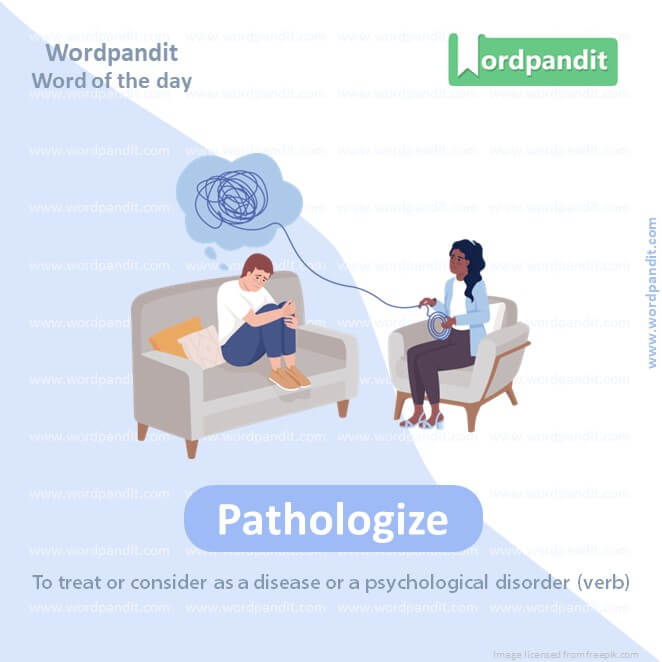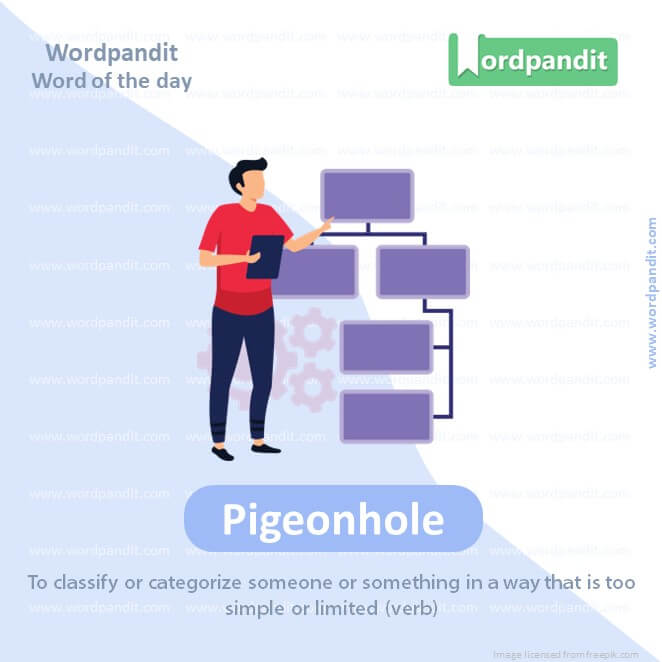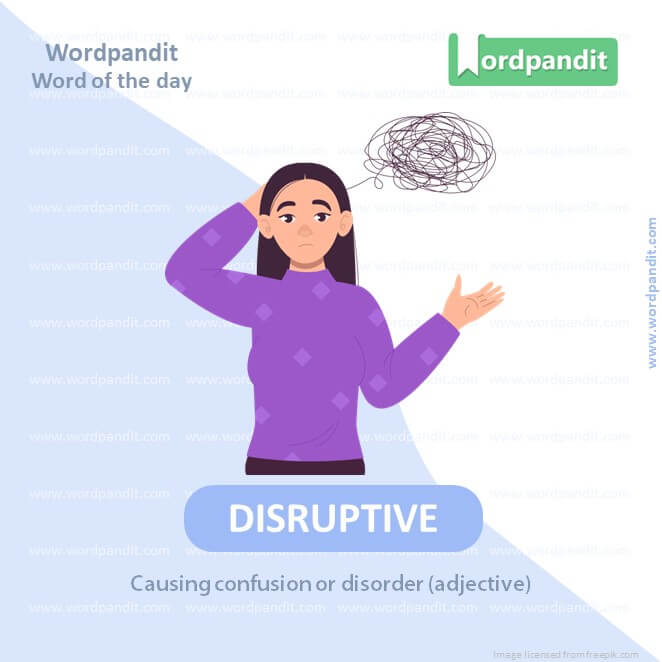Daily Vocabulary Words: List of Daily Used Words in Leading International Newspapers
Hi there. Welcome to this special section @ Wordpandit.
Our endeavour here is very simple: to highlight important daily vocabulary words, which you would come across in leading newspapers in the country. We have included the following newspapers in our selection:
• The New York Times
• The Washington Post
• Scientific American
• BBC
• The Guardian
• Psychology Today
• Wall Street Journal
• The Economist
We are putting in extensive work for developing your vocabulary. All you have got to do is be regular with this section and check out this post on a daily basis. This is your repository of words that are commonly used and essentially, we are posting a list of daily used words. Hence, this has significant practical application as it teaches you words that are used commonly in leading publications mentioned above.
Visit the website daily to learn words from leading international newspapers.

WORD-1: Synagogue
CONTEXT: Then there are the horrific individual acts fueled by poisonous conspiracy rhetoric, such as the 2018 mass shooting at a Pittsburgh synagogue and the recent beheading of a federal employee by his son.
SOURCE: Scientific American
EXPLANATORY PARAGRAPH: A synagogue is like a big house where Jewish people go to talk to God, learn about their religion, and meet friends. It’s a special place for them to gather, celebrate important days, and learn how to be good to each other and to the world.
MEANING: A building where Jewish people meet for religious worship or instruction (noun).
PRONUNCIATION: SIN-uh-gog
SYNONYMS: Temple, Shul, House of worship, Prayer hall, Congregation
USAGE EXAMPLES:
1. “My family goes to the synagogue every Friday night.”
2. “I learned a new song at the synagogue today.”
3. “At the synagogue, we light candles together.”
4. “We’re having a big gathering at the synagogue for a holiday.”

WORD-2: Pathologize
CONTEXT: This is not to pathologize conspiracy believers, who, in any case, are hard to pigeonhole. Ancient Aliens devotees and Flat Earthers, for example, seem to inhabit their own alternate realities.
SOURCE: Scientific American
EXPLANATORY PARAGRAPH: When someone makes it sound like normal feelings or behaviors are sick or wrong, they’re doing something we call pathologize. It’s like if you didn’t like broccoli, and someone said you had a broccoli fear disease. They’re making a normal thing (not liking broccoli) sound like a big problem.
MEANING: To treat or consider as a disease or a psychological disorder (verb).
PRONUNCIATION: puh-THOL-uh-jize
SYNONYMS: Medicalize, Disease, Diagnose, Label, Problematicize
USAGE EXAMPLES:
1. “He didn’t need to pathologize my normal worry about the test.”
2. “Sometimes, feeling sad is normal and shouldn’t be pathologized.”
3. “The book discusses how society pathologizes shyness in children.”
4. “They pathologize every small behavior, making things worse.”

WORD-3: Pigeonhole
CONTEXT: This is not to pathologize conspiracy believers, who, in any case, are hard to pigeonhole. Ancient Aliens devotees and Flat Earthers, for example, seem to inhabit their own alternate realities.
SOURCE: Scientific American
EXPLANATORY PARAGRAPH: Pigeonhole is when someone decides you can only be one thing or think one way, like if someone said you could only play with cars because you like them once, even though you also love playing with planes and trains. It’s not fair because you’re more than just one thing.
MEANING: To classify or categorize someone or something in a way that is too simple or limited (verb).
PRONUNCIATION: PIJ-uhn-hohl
SYNONYMS: Typecast, Label, Categorize, Box in, Stereotype
USAGE EXAMPLES:
1. “Just because I’m good at math doesn’t mean you should pigeonhole me as a ‘nerd’.”
2. “She hates being pigeonholed as just another pop singer.”
3. “Let’s not pigeonhole this idea; it has many possibilities.”
4. “Pigeonholing people can stop us from seeing their true talents.”

WORD-4: Disruptive
CONTEXT: Psychologists recognize several conditions that are characterized by violence and aggression. They include conduct disorder and disruptive mood dysregulation disorder in children as well as antisocial personality disorder in adults.
SOURCE: Scientific American
EXPLANATORY PARAGRAPH: Disruptive is when something or someone makes it hard to continue what you were doing, like when you’re building a tower of blocks and your little sibling knocks it over. It can also mean changing things in a big way, like inventing a new toy that everyone wants to play with instead of the old ones.
MEANING: Causing confusion or disorder (adjective).
PRONUNCIATION: dis-RUHP-tiv
SYNONYMS: Troublesome, Disturbing, Innovative, Unsettling, Revolutionary
USAGE EXAMPLES:
1. “The loud noise outside was disruptive to our class.”
2. “His disruptive behavior got him into trouble at school.”
3. “The new technology was disruptive, changing how we do everything.”
4. “Her disruptive ideas often led to great discussions.”
WORD-5: Dysregulation
CONTEXT: Psychologists recognize several conditions that are characterized by violence and aggression. They include conduct disorder and disruptive mood dysregulation disorder in children as well as antisocial personality disorder in adults.
SOURCE: Scientific American
EXPLANATORY PARAGRAPH: Dysregulation is a fancy word that means having a hard time controlling your emotions or reactions. It’s like when you feel so upset about not getting a cookie that you can’t stop crying, even though normally you’d be okay after a little while.
MEANING: The inability to manage or control emotional responses or behaviors appropriately (noun).
PRONUNCIATION: dys-REG-yuh-lay-shuhn
SYNONYMS: Imbalance, Discontrol, Instability, Disorder, Unregulated
USAGE EXAMPLES:
1. “After losing her toy, she showed signs of emotional dysregulation.”
2. “Dysregulation can make it hard to focus in school.”
3. “They’re learning coping skills to manage their dysregulation.”
4. “Dysregulation in sleep patterns affects his daily activities.”
WORD-6: Deliberately
CONTEXT: Its symptoms, such as stealing and deliberately harming people or animals, are among the most common reasons for referring children for mental health treatment.
SOURCE: Scientific American
EXPLANATORY PARAGRAPH: Deliberately means doing something on purpose or really thinking about it before you do it. Like when you choose the red crayon to color the apple because you know apples can be red, not just because it was the first crayon you saw.
MEANING: Done consciously and intentionally; in a careful and unhurried way (adverb).
PRONUNCIATION: duh-LIB-er-it-lee
SYNONYMS: Intentionally, On purpose, Thoughtfully, Carefully, Purposefully
USAGE EXAMPLES:
1. “She deliberately chose the quietest room for reading.”
2. “He deliberately ignored the warning signs.”
3. “Deliberately, she practiced her speech to get it right.”
4. “They deliberately made decisions to help the environment.”
WORD-7: Schizophrenia
CONTEXT: And antisocial personality disorder is estimated to affect one in 50 people, making it more prevalent than schizophrenia, bipolar disorder or anorexia.
SOURCE: Scientific American
EXPLANATORY PARAGRAPH: Schizophrenia is a word doctors use to describe when someone’s brain makes it hard for them to know what’s real and what’s not. It’s not their fault; their brain just works a bit differently. They might hear or see things that aren’t there, but doctors and families can help them feel better.
MEANING: A mental disorder characterized by distorted thinking, perceptions, emotions, and behavior (noun).
PRONUNCIATION: skit-suh-FREE-nee-uh
SYNONYMS: Psychosis, Mental disorder, Schizoaffective disorder, Mental illness
USAGE EXAMPLES:
1. “The movie portrayed a character with schizophrenia in a sensitive way.”
2. “She was diagnosed with schizophrenia and started treatment.”
3. “Understanding schizophrenia can reduce stigma.”
4. “Support groups for schizophrenia can be very helpful.”
WORD-8: Anorexia
CONTEXT: And antisocial personality disorder is estimated to affect one in 50 people, making it more prevalent than schizophrenia, bipolar disorder or anorexia.
SOURCE: Scientific American
EXPLANATORY PARAGRAPH: Anorexia is when someone doesn’t eat enough food because they’re very worried about their weight, even if they’re not heavy. They think they’re bigger than they are and can get very sick because our bodies need food to stay strong and healthy.
MEANING: An eating disorder causing people to obsess about weight and what they eat (noun).
PRONUNCIATION: uh-nuh-REK-see-uh
SYNONYMS: Eating disorder, Bulimia (as a related condition), Starvation, Weight phobia, Food avoidance
USAGE EXAMPLES:
1. “The book discusses the recovery journey from anorexia.”
2. “Support from loved ones is crucial for someone with anorexia.”
3. “There are special doctors who help people overcome anorexia.”
4. “Eating healthy and enough is important, especially for those recovering from anorexia.”

WORD-9: Consensus
CONTEXT: We recruited a large and diverse sample of over 59,440 participants from 63 countries, and tested interventions ranging from emphasizing scientific consensus (e.g., noting that “99 percent of expert climate scientists” agree on the climate change facts), or the widespread concern of others (e.g., a majority of people in each nation is concerned), to emphasizing the consequences in one’s region (e.g., increased frequency and severity of wildfires and floods) or the effects of climate change on future generations (e.g., asking participants to imagine writing a letter about their actions regarding climate change that would be read decades from now).
SOURCE: Scientific American
EXPLANATORY PARAGRAPH: Consensus is when a group of people all agree on something after talking about it. It’s like if you and your friends are deciding what game to play, and everyone finally decides to play tag because it’s everyone’s favorite.
MEANING: General agreement or a collective opinion (noun).
PRONUNCIATION: kuhN-SEN-sus
SYNONYMS: Agreement, Unanimity, Accord, Harmony, Concurrence
USAGE EXAMPLES:
1. “The team reached a consensus on the new project plan.”
2. “Finding a consensus can be hard, but it’s important.”
3. “The consensus was to delay the event until everyone could attend.”
4. “They worked together to reach a consensus on the issue.”
WORD-10: Stimulating
CONTEXT: Our paper was recently published at the journal Science Advances, where our findings revealed that doom and gloom messaging was highly effective for stimulating climate change information sharing, like posting on the Internet or social media, where negativity reigns. In light of these findings, Wallace-Wells was right in using this messaging style in his writings.
SOURCE: Scientific American
EXPLANATORY PARAGRAPH: Stimulating means something that makes you feel excited or full of energy, like when you play a really fun game that makes you think hard or when you try something new that makes you really happy and awake.
MEANING: Encouraging interest or excitement; energizing (adjective).
PRONUNCIATION: STIM-yuh-lay-ting
SYNONYMS: Exciting, Invigorating, Inspiring, Energizing, Refreshing
USAGE EXAMPLES:
1. “The puzzle was stimulating, making them think in new ways.”
2. “She found the science class very stimulating.”
3. “A stimulating discussion on the book made everyone excited.”
4. “The stimulating environment at the workshop sparked creativity.”
Vocabulary Grammar
The journey of language mastery is a thrilling blend of words and structure, often referred to as ‘vocabulary grammar’. These critical components of any language work hand in hand to facilitate meaningful communication. However, embracing ‘vocabulary grammar’ requires a nuanced understanding and a strategic learning approach.
The initial step towards understanding ‘vocabulary grammar’ is to study the functionality of words in a sentence. Grammar holds the key to how vocabulary is structured in language. Therefore, observe how words change or influence meaning when placed differently in a sentence.
Leveraging diverse resources is a great way to grasp ‘vocabulary grammar’. Engage with a range of reading materials, audio-visual resources, and interactive language apps. This offers genuine exposure to ‘vocabulary grammar’ in real-world contexts and enhances comprehensive learning.
While learning ‘vocabulary grammar’, it’s important to see vocabulary and grammar as interconnected. Understanding how different parts of speech function can help in the effective usage of vocabulary. Try creating your own sentences using new vocabulary following certain grammatical rules to reinforce learning.
Revision holds its due significance in mastering ‘vocabulary grammar’. Regular review of learnt grammar rules and vocabulary ensures long-term retention and bolsters understanding. Use techniques like spaced repetition to make your review sessions more effective.
Lastly, practicing ‘vocabulary grammar’ is key to cementing your knowledge. Whether it is through writing exercises or conversing in the language, practicing allows you to apply ‘vocabulary grammar’ in a practical context and aids in accurate language use.
In conclusion, understanding ‘vocabulary grammar’ calls for conscious observation, diversified resources, interconnected learning, regular revision, and relentless practice. As you navigate this path, you will see ‘vocabulary grammar’ like two sides of the same coin, both essential to the value it holds in the wealth of language learning.







